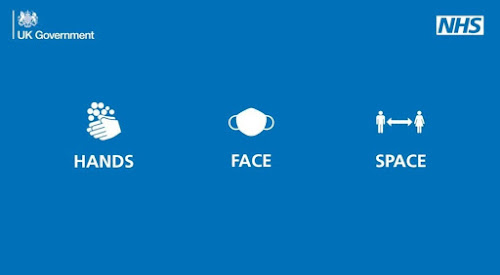Since the start of this year, our country has faced many tough challenges as we have fought the coronavirus pandemic.
The lockdown was a very difficult time for our country, but through our great national effort, virus infections have reduced significantly from the peak, and we have been able to return to a more normal way of life as lockdown as eased.
However, we have seen that as lockdowns have eased across Europe, case numbers have increased significantly. With cases on the rise in the UK, I wholeheartedly support the government in taking action to suppress the virus.
We all need to remember the basics: hands, face, space, and if you have symptoms - get a test.
You should continue to wash your hands often and for at least 20 seconds, wear a face-covering indoors, when social distancing may be difficult, and stay 2 meters apart from others, or 1 meter plus with extra precautions.
However, with cases on the rise, new rules are required in order to keep the virus under control.
That's why the government is introducing the Rule of 6.
From Monday 14th September, you cannot meet with other households socially in groups of more than 6. This applies both indoors and outdoors, including in private homes and gardens. This clarifies and simplifies the rules on social gatherings to make them easier to understand, and for the police to enforce.
There are a limited number of exemptions to this rule. COVID-Secure venues, such as places of worship, restaurants, and hospitality venues, where the total number of people inside the venue can be more than 6, but people cannot mix in individual groups of more than 6. The rules also do not apply to individual households or support bubbles of more than 6 who will still be able to gather together. Education and work settings are also unaffected, as is organised team sport, and weddings and funerals of up to 30 people.
From September 18th, it will also become mandatory for hospitality businesses to have a system in place to collect NHS Test and Trace data, which much be kept for 21 days.
The government is working with local authorities and police forces to respond to breaches of the COVID-19 Secure guidelines, and a register of newly qualified and recently retired Environmental Health Officers will also be established so that local councils can recruit more quickly and fill any gaps. COVID-19 Secure Marshals will also be introduced to help local authorities support social distancing in town and city centres.
In addition, the government is also taking steps to improve border requirements. The Passenger Locator Form, which is required for traveling into the UK, will be simplified, and measures will be introduced to ensure that passengers have completed their form before departure. Border Force will also step up and target enforcement efforts at the border to ensure arrivals into the UK are complying with the rules.
In July, the government set out plans to pilot larger audiences in venues this month. These plans will now be reviewed, and pilots will be limited to smaller, safer numbers with strict conditions to ensure social distancing. These plans will be reviewed on October 1st.
These are difficult measures, but nothing like the national lockdown imposed earlier this year. In order to control the virus, we all need to play our part by washing our hands, covering our faces indoor spaces, and keeping two meters apart from others. We will get through this, but we all need to work together.




